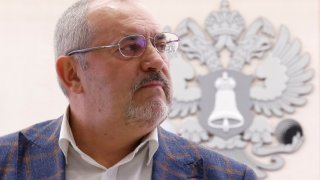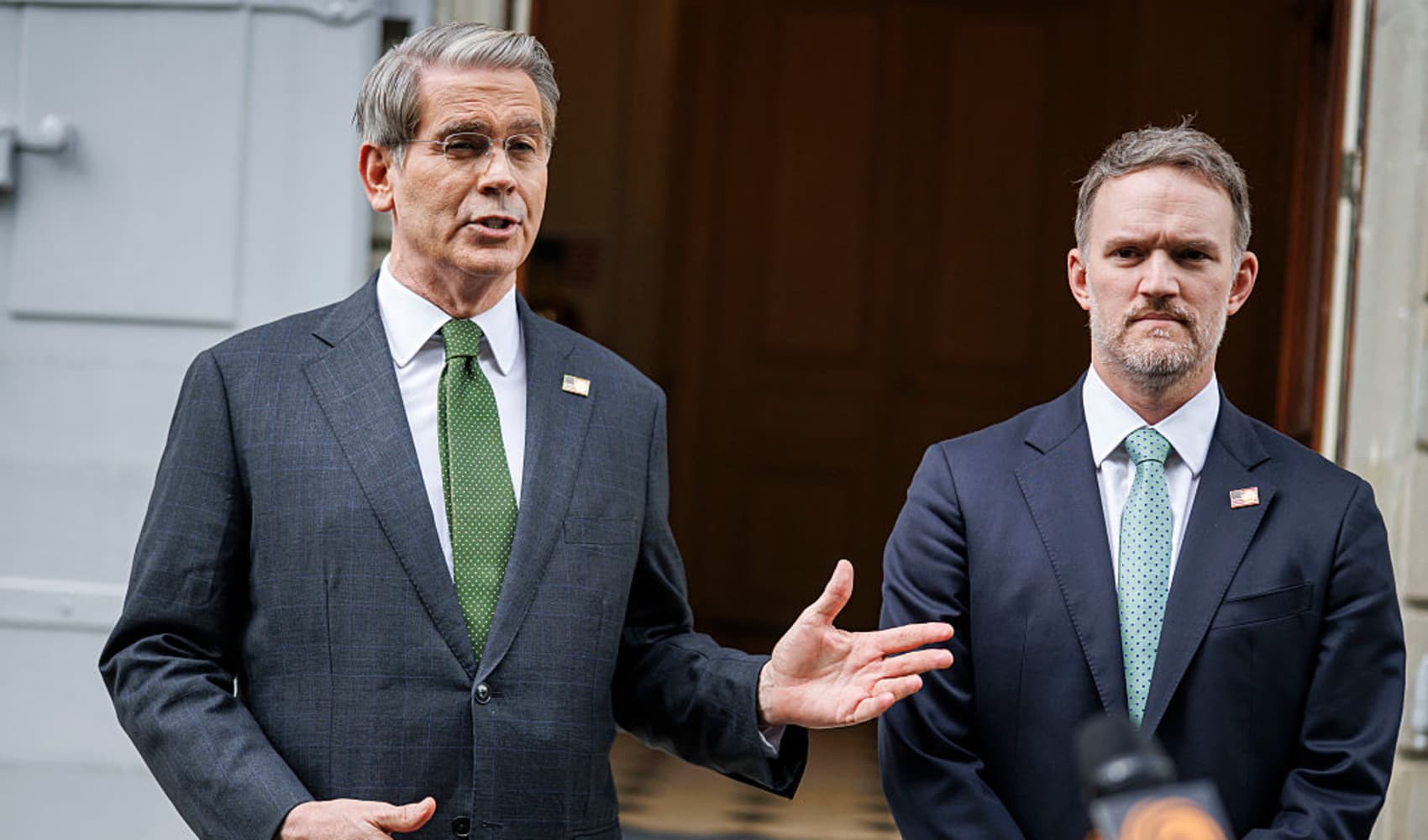
Boris Nadezhdin, a representative of Civil Initiative political party who plans to run for Russian president in the March 2024 election, visits an office of the Central Election Commission in Moscow, Russia February 8, 2024.
- Russia's electoral authorities have barred war critic Boris Nadezhdin from running in the presidential election next month.
- Russia's Central Election Commission claimed he had submitted too many defective signatures in support of his election bid.
- The CEC said more than 15% of the signatures did not qualify, but did not present any evidence to back its decision.
Russia's electoral authorities have barred war critic Boris Nadezhdin from running in the presidential election next month, saying he had submitted too many defective signatures in support of his bid.
Stream San Diego News for free, 24/7, wherever you are with NBC 7.
Politicians who wish to run in Russian elections must turn in at least 100,000 signatures — or more, in the case of independent candidates — in support of their platform.
Nadezhdin, a former Russian lawmaker and well-known political pundit in Russia, submitted nearly 105,000 signatures last week to Russia's Central Election Commission, which oversees national elections, ahead of the March 15-17 vote.
Get top local San Diego stories delivered to you every morning with our News Headlines newsletter.
The CEC said Thursday that Nadezhdin was not eligible to run because of the high percentage of defects in the voter signatures he collected, according to a Google-translated Telegram post. The CEC claimed more than 15% of the signatures did not qualify, but did not present any evidence to back up its decision.
A working group of the CEC had indicated that a significant number of signatures were defective, and Nadezhdin's group had signaled that they would appeal the ruling. CEC Chairwoman Ella Pamfilova said Thursday that "the decision has been made," Russian state-owned news agency Tass reported.
Asked about the CEC's decision Thursday, Kremlin press secretary Dmitry Peskov said electoral rules were being followed, Reuters reported.
Money Report
The Kremlin had already sought to limit Nadezhdin's potential to upset an election in which a win for current Russian President Vladimir Putin is seen as a done deal. Peskov told CNBC last week that "we are not inclined to exaggerate the level of support for Mr. Nadezhdin."
The decision to bar his candidacy will come as no surprise to close watchers of Russian politics and Kremlin critics.

Political analysts said it was extremely unlikely that a political candidate standing on a liberal, anti-war platform who has garnered a following among a metropolitan section of Russian voters, would be allowed to run in the election. They added that the Kremlin likely feared a potential swell of support for Nadezhdin that it would then have to suppress, as it has done with other political opponents.
Still, analysts have been keen to point out that Nadezhdin is part of Russia's so-called old school of politicians: a former lawmaker who has been associated over the years with several parties who have backed Putin. Nadezhdin, they noted, was still counted as a member of the "systemic opposition" that exists in Russia to at least present an appearance of political plurality.
For example, Russia's Communist Party, Liberal Democratic Party of Russia and A Just Russia are part of the systemic opposition which rarely dissents from the Kremlin line on major issues, such as the war.
Nadezhdin was standing as a candidate on behalf of the Civic Initiative political party, under a campaign manifesto that had promoted peace with Ukraine and friendly and cooperative relations with the West, as well as fairer elections and a smaller state. The party, which has not been banned, was co-founded by Ksenia Sobchak, a Russian media personality and dabbler in political affairs, alongside former Economy Minister Andrey Nechayev and Dmitry Gudkov.
Sobchak has at times ostensibly been a part of Russia's opposition movement, but has long been suspected of being a Kremlin stooge given her family links to Putin. She is rumored to be his goddaughter.
Max Hess, fellow at the Foreign Policy Research Institute and author of "Economic War: Ukraine and the Global Conflict Between Russia and the West," told CNBC that the Kremlin "seems to have used Nadezhdin as a test balloon to gauge how much liberal opposition there still is within the country, or at least how much it is willing to be public."
Hess added that Nadezhdin was still "part of the system and very much an element of the controlled opposition" and the political fallout was likely to be minimal for him, unlike other Russian political oppoents who have been jailed or have left the country. Other Putin critics have died in mysterious circumstances.
"Like Sobchak, who was the Kremlin's controlled-liberal-in-place-of-a-real-liberal candidate in 2018, I expect the fallout for him to be minimal, perhaps he won't be invited back on state media talk shows for a while but that's it," Hess said.






